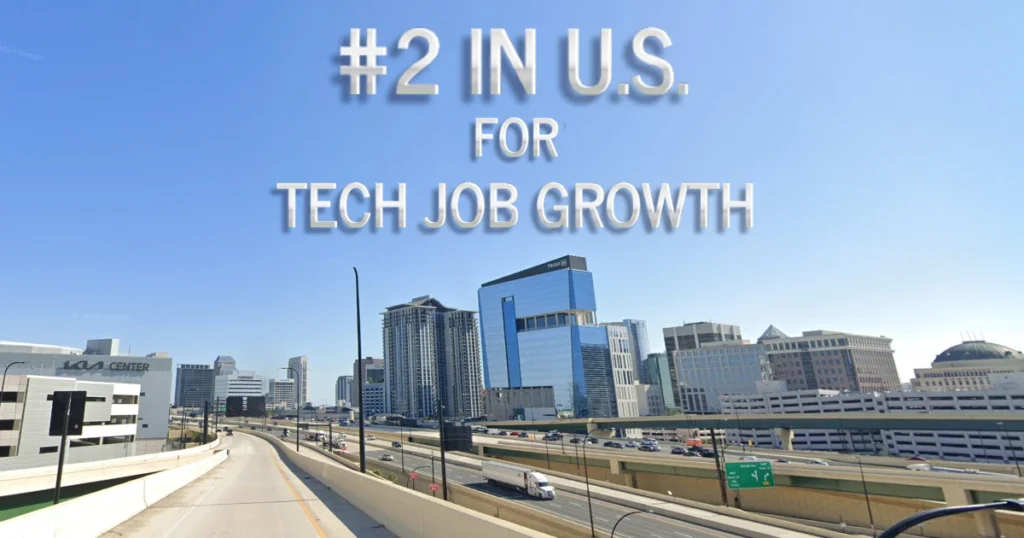Orlando rose to second place among US metropolitan areas due to technology employment growth, according to the newly released Tech of the Tech Workforce 2025 report by the Computing Technology Industry Association. This annual study tracks employment trends across the high-tech industry. Orlando is highlighted as one of the country’s fastest growing technology hubs, ranking second in Sacramento year-over-year.
In 2024, Orlando added nearly 1,800 new technology jobs, increasing the total employment in the area to around 77,700. This represents a 2.3% increase from the previous year, significantly exceeding the national average. Over the past five years, the Metro area’s high-tech workforce has grown by 21%, doubling the overall employment growth in the region and almost double the national technology employment growth rate.
Orlando was ranked second in improving high-tech jobs ahead of rapidly growing cities like Salt Lake City, Baltimore and Charlotte, following New York City with total jobs additions.
The Orlando tech sector continues to provide significant economic incentives to job seekers, with a median high-tech wage of around $103,000, more than twice the average salary in all industries in the region.
The surge in tech employment in Orlando is driven by several factors, including the expansion of major companies such as ThreatLocker, BNY Mellon and Charles Schwab. The region has seen an increase in software-related positions, currently accounting for almost 40% of all high-tech jobs locally. Additionally, local institutions such as the University of Central Florida have launched major employment initiatives to strengthen efforts to meet demand and increase engineering and computer science faculty.
Despite this positive momentum, the region faces challenges regarding diversity in its technological workforce. Women hold only 28% of local technology employment, while Hispanic and Black experts only 17% and 11%, respectively. Business and community leaders highlight the need for targeting strategies to close these gaps and increase access to opportunities.

Furthermore, Orlando’s technological economy is relatively underestimated in terms of business density. High-tech companies account for less than 5% of all companies in the region (a national average of 5.8%), indicating the growth potential of startup activities and company formation.
With forecasts showing that the US technology workforce will add more than 350,000 workers per year over the next decade, Orlando is well positioned to gain a significant share of its growth. However, achieving this requires continuous investment in talent development, comprehensive employment practices, and early stage innovation support.
By securing the second place in national technology’s employment growth, Orlando has established itself not only as a tourism destination but also as a new force in the tech economy.


